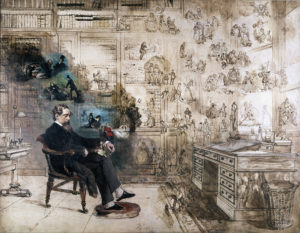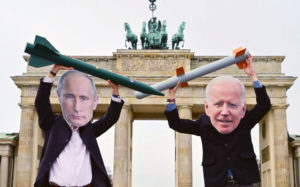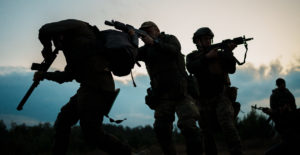For nine days in January 1901, mesmerised spectators on a hill in south-east Texas watched a deluge of oil erupt high into the air and descend back to earth. Nobody before had discovered oil in the volume found at Spindletop. As the historian Darren Dochuk recounts in his brilliant book Anointed with oil: how Christianity and crude made modern America, Spindletop was a historical watershed. After the Pennsylvania boom was exhausted, John Rockefeller’s oil behemoth Standard Oil held to the conviction that there was no oil beyond the Mississippi and headed abroad. Driven out of the east, the wildcatters journeyed west. And it was Pattillo Higgins’s discovery at Spindletop, not Rockefeller, that turned oil from a product primarily used as kerosene for light into the commodity that created 20th-century America at home and abroad.
The Western way of life that flowed out of Texas came to take oil for granted. At any time when supply was abundant, few stopped to think about its production. For consumers, oil life was a practically easy life. It was as if, as the Italian novelist Italo Calvino wrote in his short story ‘The Petrol Pump’, energy was “unconditionally and endlessly at your service”. But that notion rested on a colossal illusion given that producing oil took place in a world of destructive chaos. It was no easy thing to extract the sun’s energy from finite organic matter trapped on the seabed for millions of years before there was any form of human life.
Wildcatters like Higgins understood this reality. For them, oil invoked dreads far removed from the chimerical promise of modernity. Since it bent cosmic time, oil could not be trusted. As one witness to a later gusher mused: “Whenever you punch a hole so deep into the ground that oil pops out, Hades come with it. And the more oil, the more Hades.” This equation of oil with Hades contained multiple meanings. At its simplest, it mythically rendered the origins of oil in the underworld of the dead. In blowing away the river that separates the world of the living from the world of the dead, oil accelerated the temporal vanity of all mortal aspiration.
In Pennsylvania and Texas, long-standing rural settlements became fleetingly rich oil towns and then, when the oil fields were depleted, wastelands. Oil encouraged the wildcatters to speculate with borrowed capital against the arbitrary whims of geology and the market power of Standard Oil, inevitably risking their own financial and moral ruin. Since oil wells were highly combustible, drilling for oil also summoned Hades conceived as the Christian inferno of Hell. For many of the wildcatters, to bring Hades into play was to invite the End Times both as the Day of Judgement and the final consummation of the world in fire. To take a verse from Proverbs 27, it constituted a world where: “Hell and destruction are never full; so the eyes are men are never satisfied.”
The wildcatters’ treks westward with this kind of consciousness became part of a potent cultural American imaginary around the temporal instability of oil and its elemental power to poison the earth and corrupt human beings. Three stories told over the course of 20th-century America are particularly revealing: Upton Sinclair’s 1927 novel Oil!, the 1956 film Giant, and CBS’s original Dallas show which began in 1978. Each mediates on oil’s demonic power. Linked as they are by the initials JR for a protagonist, they build on each other to form a saga about the afterlife of Spindletop.
The never-ending search for oil and the risk of fire when it is found constantly always encroaches on the sanctity of the land. In Oil!, wildcatter J. Arnold Ross lies to acquire a goat-ranch on which to drill for oil in a place called Paradise in California. He wants to pass on the oil empire he builds to his son Bunny; at the novel’s end the Paradise wells have gone up in flames. In Giant, the old-moneyed Bick Benedict initially renounces the wealth drilling on his ranch would bring. After he surrenders, he insists, that “all this oil around here hasn’t made a lot of difference. We live pretty much the way we always have.” But he speaks lounging in a new swimming pool and behind him the once pristine terrain has been transformed by hundreds of oil derricks. Dallas, meanwhile, persistently returns to the tension between Ewing Oil, the family business, and Southfork, the cattle ranch where the warring Ewings live. The patriarch, Jock Ewing, owns Ewing Oil. His wife, Miss Ellie, owns Southfork. In one of the show’s finest episodes, a heartbroken Miss Ellie chooses to end her father’s prohibition on drilling for oil on Southfork in order to save Ewing Oil from bankruptcy.
For individuals to touch oil in these stories is to live in spiritual danger. In Oil! those ranchers offered leases for drilling on their lands find “their frail human nature … subjected to a strain greater than it was made for”. J. Arnold Ross dies in exile in Europe when the real-world Teapot dome scandal — in which President Warren Harding’s Interior Secretary handed out leases on land that had been naval oil reserves to two oil companies for bribes — catches up with him.
In Giant, wildcatter Jett Rink is played by James Dean over the last months of his life with a doomed, unearthly beauty. An oil-saturated Jett declaims after his gusher goes up: “You all thought old Spindletop… was all the oil there was didn’t you. But I’m here to tell you it ain’t. … I’m a rich un.” He becomes the richest man in Texas. But he is last seen fallen to the ground drunk in an empty hall where there was supposed to be a banquet to celebrate the dedication of the Jett Rink airport.
Under the guise of a soap opera, Dallas created the darkest mythology about oil’s ruinous power. All the principal characters live with the demon of Ewing Oil and one way or another they are all destroyed by it. On the surface, there is a duality between two brothers, the elder — JR — who is evil, and the younger — Bobby — who is good. But while Bobby is a much better family man than JR, the closer Bobby gets to oil the more the fraternal polarity falls away. In what was Dallas’s best season, the competition between the brothers for control of the company after Jock’s death simultaneously corrupts Bobby’s character and reveals the ambition behind his righteousness, costing him his marriage.
Oil ultimately destroys the Ewings as a family and eventually it consumes Ewing Oil itself. The Ewing men go to the brink and pull back only for the cycle to start again more hopelessly. The oil past always has more pull for the Ewings than the oil present. As the show constantly reminds the viewer, Jock Ewing founded Ewing Oil as a wildcatter in the Thirties. When the show starts, Jock is newly retired, and JR is running the company after, as JR once puts it, “the sudden devaluation of the Ewing dollar”: the world where the US must import huge quantities of oil. Jock is glorified as a symbol of a lost past, “the kind of man who made Texas great”. JR is a charismatic anti-hero, constantly improvising as much abroad as at home. JR’s eyes always want more. His ways court disaster for Ewing Oil. But for a while they just as regularly rescue it.
The tide decisively turns against the Ewings in the tenth season, set against the backdrop of the 1986 oil price crash, which devastated the Texas oil industry. JR manoeuvres to blow up Saudi fields to force up prices. When the blowback endangers all the Ewings, Miss Ellie tells her sons that Ewing Oil should have died with their father. Not for the first time, Bobby tries to get out. His wife Pam is proud he has put his “whole house in order”. But oil time has accelerated well beyond Bobby’s belated moral epiphanies. Before Bobby can sell his Ewing Oil shares, the Justice Department announces an investigation into JR’s Middle Eastern ventures. In the ‘Fall of the House of Ewing’, the Justice Department closes down Ewing Oil, and the assets of the once wildcatting company are bought by the show’s fictional oil major, whose CEO has long plotted to bring the Ewings to heel.
This storyline should have served as an endpoint (late Dallas became an unwatchable mess). In symbolic terms, Dallas turned the legacy of Spindletop to dust at the hands of hubris, power, and contingent circumstances in a style recognisable from any Greek tragedy. The fact it was an oil story made for a global audience of energy-unaware oil consumers who scarcely noticed the undercurrents to what they were watching is perhaps its own commentary on western consumers’ relationship to the material basis of their way of life.
But whatever the force of destruction at work, there is no suggestion in any of these stories of 20th-century Americana that oil can simply be renounced. In Oil! the idealistic Bunny never repudiates his father nor doubts that “this is an oil age”. The novel ends in a cemetery in Paradise. Sinclair allows himself the hope that “men can find some way to chain the black and cruel demon” that “roams the earth”, but he has just described the new derricks that are being built to replace the burnt-out ones.
Dallas goes further, suggesting that JR’s ways are a necessary evil for the age of affluence it portrays. In the show’s final episode, a drunken JR wanders around an empty Southfork. An It’s-a-Wonderful-Life-style figure appears to show him a world where he was not born: Ewing Oil has collapsed a few years after Jock’s retirement, leading Jock to suicide and then Miss Ellie to her grave. Yet this does not redeem JR: in the show’s last scene, JR appears to have turned Jock’s old gun on himself, rendering him the final casualty of all the grief Ewing Oil has caused.
Westerners living lives far removed from the realities of the oil industry are now much more used to the idea of the commodity as a destructive force than those watching Dallas in its prime. Today, climate change and the last decades of geopolitical turbulence around energy have given an urgent charge to the idea that oil is a force from Hades threatening the End Times. Yet Sinclair’s vision of resealing the boundary between Earth and Hades by bringing oil to heel requires sacrifices that many of us living the life oil allows don’t want to contemplate. Indeed, to wish Spindletop away as a wrong turn would be to wish ourselves away: it is the rise of oil as an energy source that has made it possible for there to be so many of us alive in the world today.
These paradoxes are at work in the American novelist Cormac McCarthy’s work. In his masterpiece Blood Meridian — published in 1985 — McCarthy told a story about scalp hunting across the Texas-Mexico border in the mid-19th century, making Texas a site of cyclical cosmic time. The first wildcatters easily fit into McCarthy’s mythology. Indeed, one could perhaps read the novel’s epilogue, where a man is “progressing over the plains” making holes in the ground “striking the fire out of the rock which God has put there”, as the start of a wildcatting quest.
But in his post-apocalyptic novel The Road — published in 2006 — cyclical time has ended: everything is sinking into oblivion. The cause of the ecological cataclysm is unspecified. But a story of oil in its last twilight is palpable. In the opening, a father awakens from a dream where he and his son have been lost in the depths of a cave until they reach “a black and ancient lake”. On their journey south, the man and the boy use an “oil company roadmap” as a guide. The man has them search for gasoline to light their lamp. At one early stop, they first find “the odour of gas only a rumour” and then, desperate, return to decanter dregs from plastic oil bottles. Later, what they find is “years old. But it was gasoline and it would burn”. It is their oil-lit lamp that allows them to discover the largest store of food they encounter.
In The Road, it is as if all oil time is compressed from oil’s origins to its first use to its necessity to its reconstruction of the American landscape to its depletion and ecological hazard. Before his demise, the man sees the boy “looking back at him from some unimaginable future”. That place appears to be an oilless world. During the man’s last night, the light comes not from the lamp but a candle borne by the boy. To the man, “old dreams encroached upon the waking world”. With his death, oil and its stories might be said to pass into the silence “of things ceasing to be”.
In the last paragraph, the authorial voice changes. We are transported to an organically alive world. Here, the maps are the “patterns” on the back of trout swimming in mountain streams, and they are “maps of the world in its becoming”. But something old still has its purchase. The patterns are also “Maps and Mazes. Of a thing which could not be put back. Not be made right again”. It’s an ending that appears unwilling to privilege either optimism or pessimism: an ending perhaps from a place where the cosmic stakes of the age of oil can’t quite be contemplated.
Disclaimer
Some of the posts we share are controversial and we do not necessarily agree with them in the whole extend. Sometimes we agree with the content or part of it but we do not agree with the narration or language. Nevertheless we find them somehow interesting, valuable and/or informative or we share them, because we strongly believe in freedom of speech, free press and journalism. We strongly encourage you to have a critical approach to all the content, do your own research and analysis to build your own opinion.
We would be glad to have your feedback.
Source: UnHerd Read the original article here: https://unherd.com/





